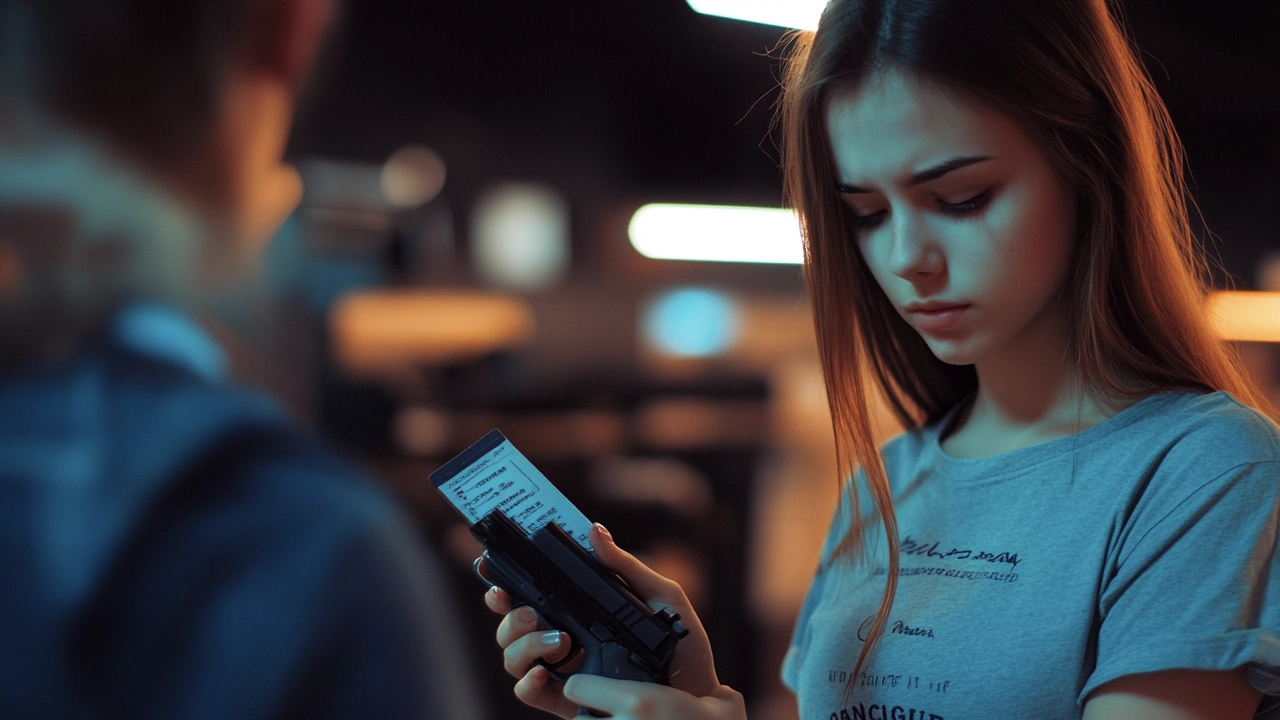If you’ve ever been to a gun range, you’ve probably been asked for your ID. It might seem like a hassle, but there are several good reasons why ranges do this. Let’s break it down so you can feel confident and informed the next time you step into a range.
1. Age Verification
Gun ranges need to verify your age to ensure you meet the legal requirements to handle firearms. Age restrictions can vary depending on the state, but here are some general rules:
- Minimum Age Requirements: In most states, you need to be at least 18 years old to shoot unsupervised. If you’re planning to rent a handgun, you’ll typically need to be 21.
- Minors and Firearms: If you’re underage, don’t worry! Many ranges allow minors to participate as long as they’re accompanied by a parent or guardian. This is a great way to introduce younger folks to firearm safety in a controlled environment.
Checking IDs helps ranges stay compliant with the law and manage their liability. Nobody wants to risk their business over a simple oversight, right?
2. Participant Tracking
Gun ranges often keep track of who’s using their facilities, and for good reason:
- Safety and Accountability: By recording visitors’ information, ranges can maintain a safe environment. If there’s ever an issue—like property damage or a safety incident—they can quickly figure out who was present.
- Property Protection: Many ranges rent out firearms and equipment. Requiring an ID ensures they have a way to hold renters accountable if something goes missing or gets damaged.
Some ranges may ask for additional information beyond just your ID. It’s not about snooping—it’s about creating a safe and responsible community of shooters.
3. Background Checks
Now, here’s where it gets interesting: some ranges run background checks, but they’re not legally required to do so. Let’s break this down:
- What Background Checks Entail: When ranges decide to run a background check, they might ask for your name, address, date of birth, and Social Security number. This allows them to check if you’re legally permitted to handle firearms.
- Federal Law on Background Checks: The Brady Law requires all licensed firearms dealers (FFLs) to run background checks when selling guns, but this doesn’t extend to gun ranges. That said, federal law does prohibit certain individuals—like convicted felons or those with violent misdemeanors—from possessing firearms at all.
- State-Specific Laws: In states with strict gun control laws, ranges might be more likely to implement background checks as an extra precaution. For example, states like California and New York often have stricter requirements compared to more gun-friendly states.
4. Legal Requirements for Gun Ranges
Here’s the deal: there are no federal or state laws mandating that gun ranges perform background checks. However, ranges have a vested interest in ensuring everyone who walks through their doors is legally allowed to use a firearm. Why?
- Liability Concerns: If a range unknowingly allows a prohibited person to use a firearm, they could face legal consequences. By checking IDs and, in some cases, running background checks, ranges protect themselves and their patrons.
- Local Laws: Even though background checks aren’t required federally, local laws might encourage ranges to adopt stricter policies. For example, some city ordinances may impose additional rules on ranges operating within their limits.
5. The Role of the Brady Law and NICS
You’ve probably heard of the Brady Law and the National Instant Criminal Background Check System (NICS), but how do they tie into gun ranges?
- Brady Law Basics: This law requires all licensed firearms dealers to run background checks on gun buyers. It’s a key part of ensuring firearms don’t end up in the wrong hands.
- NICS: Operated by the FBI, NICS allows FFLs to quickly check a person’s eligibility to purchase a firearm. While gun ranges don’t typically use NICS, understanding its role helps clarify why ranges might implement their own ID and background check policies.
6. Ranges in Different States
The way ranges operate can vary widely depending on where you are:
- Strict Gun Control States: In states like California, New York, or Massachusetts, ranges often have more rigorous ID and background check processes. These states typically have stricter gun control laws, so ranges align their policies to stay on the safe side.
- Gun-Friendly States: In states with a strong gun culture, like Texas or Arizona, you might find ranges with more relaxed policies. Public outdoor ranges in these areas may not even require an ID, especially if you bring your own equipment.
7. The Bigger Picture: Why It Matters
So why do all these checks and balances matter? It comes down to creating a safe, legal, and enjoyable environment for everyone. When ranges ask for your ID, they’re doing their part to uphold the law, protect their business, and keep their community safe.
Tips for Your Next Range Visit
If you’re new to shooting or visiting a range for the first time, here’s how you can prepare:
- Bring Your ID: Even if you’re a regular shooter, make sure to have a valid ID on hand. It’s just part of the process.
- Ask Questions: If you’re curious about a range’s policies, don’t hesitate to ask. Most range staff are happy to explain their rules and procedures.
- Follow the Rules: Every range has its own set of rules. Familiarize yourself with them and always prioritize safety.
Wrapping It Up
At the end of the day, asking for your ID isn’t just about red tape. It’s about making sure everyone has a safe and enjoyable experience. Whether it’s verifying your age, tracking participants, or occasionally running background checks, these policies serve a purpose. So next time you’re at the range, you can hand over your ID with confidence, knowing it’s all part of keeping our shooting community responsible and secure.

